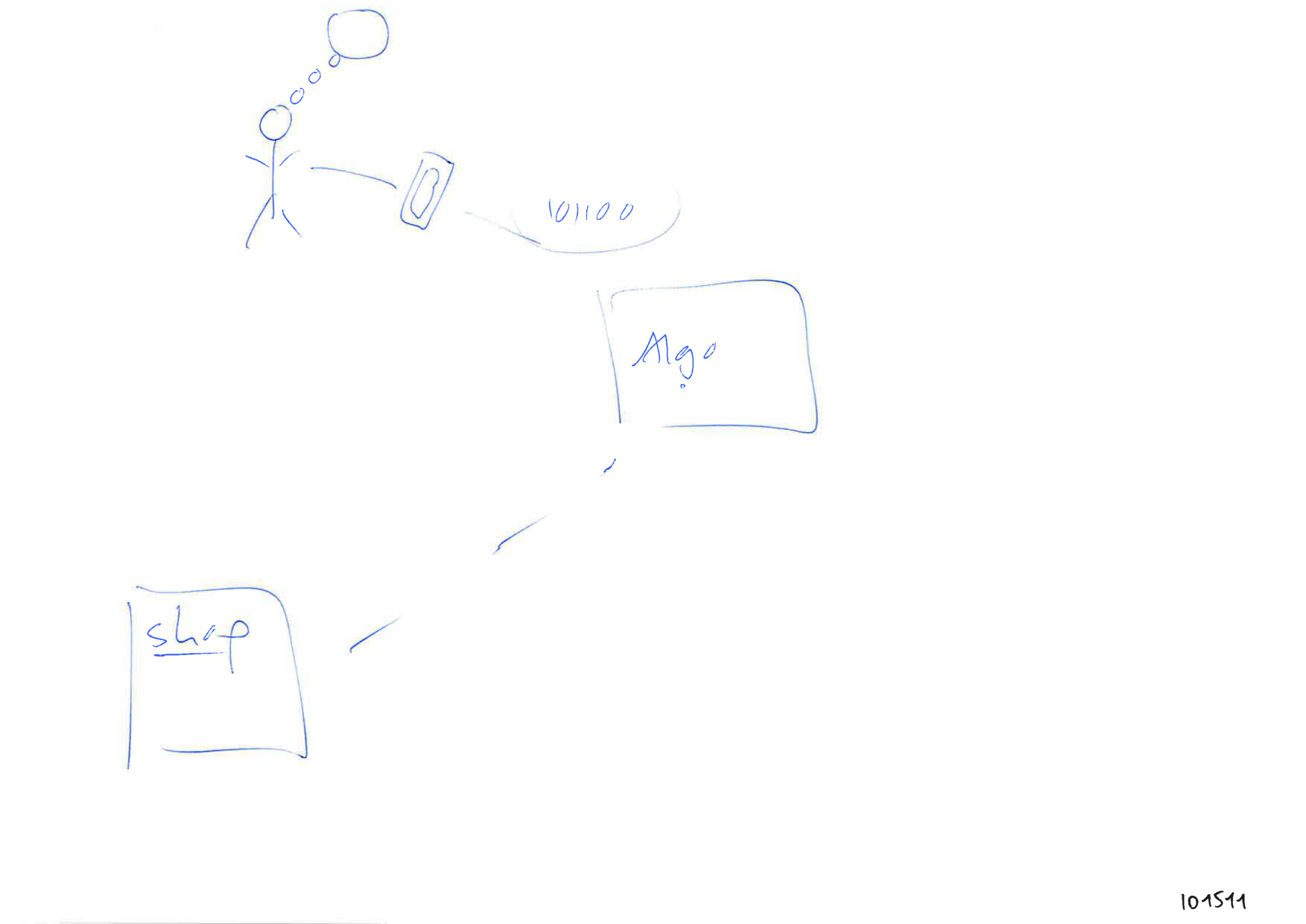An algorithm, drawn by a 39-year-old male electrical engineer in Switzerland.

Then a small second sketch and this time I would ask you to draw how an algorithm works. You can just turn the page. How an algorithm works. Exactly. A sketch? Yes [laughs]. Um. So I'm kind of getting back to humans, again. They have an idea or I want to order something or I want to buy something. He enters that into his device and the device...In the end it's a program, a code, where everything runs digitally. As a symbol I just make a little bit of one, zero, zero. And the algorithm knows how to deal with this information and somehow forwards it to the shop or to the right place. Okay, good. Can you explain to me how you learned about algorithms or where the knowledge comes from? Education, college. You took courses about algorithms then? Yeah. May I ask what you do for a living? I'm an electrical engineer. Okay, so you had that in training. And yet it's difficult. Algorithm is so... Yeah, there are so many kinds. Do you have any contact with algorithms in your daily life? Or where do you encounter algorithms in everyday life? I think there is an algorithm behind many interfaces. But directly encountering algorithms in everyday life. So you can't see it. Yes, it's behind the surface. No direct contact.